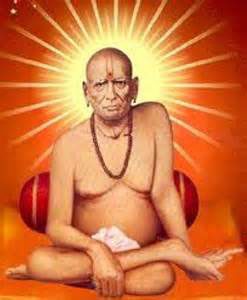I was about 20 years old that February day when I drove out the gate of Fort Knox and headed across the belly of the country for Reno, Nevada. A storm was coming. The day before, I had purchased a Mercury coup for the trip from a used car salesman on the dingy, leftover side of Louisville. He opened the hood, pointed to the straight six, and assured me the car would make it. It was not a bad looking car, this sporty white coup with electric windows that worked with the push of a button. The size of the grin on the salesman’s face made me worry, and since the car was a Mercury, sold at a discounted price no-less, I should have known something was up.
Just west of the Mississippi it began to snow again, a soft drifty blanket that made the country roads seem cozy. I’d been smoking my Camels, anxious that the stale smoke would seep into the upholstery of my new car. To air it out, I turned up the heat and opened the driver’s window. Thoroughly chilled after ten miles, I pushed the button to close the window. It shuddered in place, raised an inch, clunkily complained, and then suddenly died, receding back down into the door. I tried again. A  grinding noise. I gave it time to gather energy for another go as wind driven snow blasted the car and the landscape became utterly white. I pushed again. Nothing. I banged on the door and used language even the guys in the barracks would blush at, trying to cajole it to cooperate. Apparently, it didn’t like my tone since it merely moaned back at me. Perhaps the window was frozen in place. So, I apologized to the Mercury and wrapped myself in an Army blanket. Sleet flew in ever more rapidly to sting my face. I used a tee-shirt to clear the windshield of its foggy drippings. Miles on, the windshield wipers clicked at supersonic speeds as the temperature plunged to the 20’s. My face and hands were turning numb. Luckily, the heater kept my legs alive, and some warmth rose from below. I could barely hear the radio over the lamenting wail of the storm and the heater’s fan working overtime. It wasn’t long after noting my luck that the whirl of the fan chugged to a coughing halt. Now, I’m angry myself. Mercury’s were known to have electrical problems. Casting aside prudence––I’ve been impulsive all my life––I chose to act, believing a balding salesman with a resplendent grin. Soon my legs and feet were numb, my hands clumps of frozen meat.
grinding noise. I gave it time to gather energy for another go as wind driven snow blasted the car and the landscape became utterly white. I pushed again. Nothing. I banged on the door and used language even the guys in the barracks would blush at, trying to cajole it to cooperate. Apparently, it didn’t like my tone since it merely moaned back at me. Perhaps the window was frozen in place. So, I apologized to the Mercury and wrapped myself in an Army blanket. Sleet flew in ever more rapidly to sting my face. I used a tee-shirt to clear the windshield of its foggy drippings. Miles on, the windshield wipers clicked at supersonic speeds as the temperature plunged to the 20’s. My face and hands were turning numb. Luckily, the heater kept my legs alive, and some warmth rose from below. I could barely hear the radio over the lamenting wail of the storm and the heater’s fan working overtime. It wasn’t long after noting my luck that the whirl of the fan chugged to a coughing halt. Now, I’m angry myself. Mercury’s were known to have electrical problems. Casting aside prudence––I’ve been impulsive all my life––I chose to act, believing a balding salesman with a resplendent grin. Soon my legs and feet were numb, my hands clumps of frozen meat.
Undaunted, I continued on to the University of Missouri in Columbus and the girl from back home. Her room was warm; my purple hands turned pink again, my feet came alive. And she was pretty enough, gay and curvy, or chunky, depending on your point of view. We talked for hours in her cramped dorm room. Actually, she did the talking, rattling on in college girl banality, as I tried mightily to stay awake. As willing and anxious as I was—I put in a gamely effort—she decided to maintain her virtue. Nevertheless, I stayed through the wee hours, collapsed at the foot of her bed, having failed to satisfy a soldier’s need, and deciding to leave early in the morning. I still regret that night—the defeat, not the effort. But the diversion to Columbus wasn’t a bust. I did snag a trophy.
During those days, most soldiers were fairly ignorant of the world at large. We had provincial tastes and little ambition other than to make it to payday without getting busted. So you can appreciate how impressed I was by college students my age; young princes and princesses who had brains and a future and a pocket full of their parent’s lucre. The next morning, strolling about campus, I studied them carefully, trying to discern the difference. Ducking under snow-laden specimen trees, and trying to escape the cold, I took refuge in the university library. Immediately overwhelmed by the volume of the high-ceilinged building and the mass of books, I shuffled to the echo of my steps, looking left and right, past rack after rack of books of varying shapes and color.
Still too early for most of the young aristocracy to rise, I had that gorgeous space and all that knowledge to myself. At that time of life, I was certain I’d never achieve even a modest education, but I pulled a few heavy tomes from nearby shelves just to get the feel of them. A miniature, a pretty little book, not much larger than a postcard, somehow caught my eye. The book jacket was made of smooth, well-worn leather, ivory in color, and richly embossed in an elaborate font. I ran my fingers over the raised title and mysterious seal and opened the cover to find it dated before the end of the 19th century. It was as if I found a pearl sparkling on an impotent oyster bed. Although not by habit a thief, I stealthily looked over my shoulder, placed the little treasure under my coat, and trudged through the snow back to my Mercury. I tossed the book in the back, shut the door, grabbed my blanket, and twisted the key in the ignition. The engine roared loudly against the white stillness, shocking me with guilt and second thoughts.
Buffeted by a snow that engulfed the western half of the country, and taking cat naps on the way, I drove through the plains, breeched the Rockies, and took the last leg of the trip across the Great Basin: a marathon of driving, freezing from the open window, and dog tired. Twice on those eerie, empty roads, I heard gravel popping before jerking the car back onto the asphalt.
It was deep into that last howling, snowy night, my eyelids becoming heavy again, when suddenly a statuesque, young woman appeared in my headlights. Her white dress and cloak and hair whipped behind in the wind, standing there in the middle of the road. Her blue eyes were on me. She was calmly smiling. I hit the brakes and skidded to the right, coming to a sliding halt. I stepped out on ice, cupped my hands about my mouth, and called for her. But she was gone. I paused a moment and called again and felt silly for it. Driving on, my heart beat at a rabbit’s pace as I struggled to dismiss her as a hallucination. Her face still so vivid.
Once safely in Reno, I settled down to read the little ivory book. The author was an English adventurer who traveled to India and walked among the swami, intrigued by withered, wise men living on alms and prayers. The author chronicled what we might call miracles. One that I distinctly remember recounted his encounter with a particular swami, a dark-skinned, little man, thread thin, white-bearded with penetrating eyes. The swami talked in universals too vague to be helpful and told the adventurer he’d see him soon. Our author then climbed a nearby mountain to visit a temple. When he arrived, the same seer was meditating under the shade of a nearby a tree. It would have been impossible for the swami to have preceded him. Our traveler was told that the swami had in fact been meditating for days and never left his spot under the tree. He had somehow transported himself in time and space.
 If we are honest with ourselves, most of us will admit that sometime in our life we have been touched by the mysterious, by the divine: a tense awakening never to be forgotten, a spiritual experience. Silly, perhaps, but the little book made that impression on me, an epiphany never felt in my now-and-again reading of the world’s religious texts. It helped me recognize when an unexpected insight or a universal truth brushed my consciousness, like my vision during the snowstorm when a white-cloaked girl with a calming smile appeared and disappeared near the hash mark in the road. Since the time of the book and my vision, I’ve never completely discounted stories of the miraculous, or the possibility of reincarnation, or even immortal life in another dimension. No one knows, and that is the point of faith and belief.
If we are honest with ourselves, most of us will admit that sometime in our life we have been touched by the mysterious, by the divine: a tense awakening never to be forgotten, a spiritual experience. Silly, perhaps, but the little book made that impression on me, an epiphany never felt in my now-and-again reading of the world’s religious texts. It helped me recognize when an unexpected insight or a universal truth brushed my consciousness, like my vision during the snowstorm when a white-cloaked girl with a calming smile appeared and disappeared near the hash mark in the road. Since the time of the book and my vision, I’ve never completely discounted stories of the miraculous, or the possibility of reincarnation, or even immortal life in another dimension. No one knows, and that is the point of faith and belief.
Belief, however, is a tricky thing. My ambivalence in accepting religious constructs––the concept of the Son of God for instance––comes from experience, my daily reliance on cause and effect, on what I can sense and measure. Even so, that second sense of the divine we sometimes feel, those otherwise inexplicable but spiritually emotive instances that we accept as true, share our experiential life. Shouldn’t we give them credence, too? But then, I’m susceptible to such wishful thinking since I’m also one of those souls who have a need for meaning—that core imperative and genesis of all religious thought.
What I do know is that belief creates a form of reality of its own. Like my certainty that even though I was a sucker for that crooked car salesman, a failed philanderer, and a book thief, the girl in the white cloak thought I was redeemable. And that’s good enough for me.
Tim O’Neill
503-910-5795
timtheinnocent@aol.com




























































